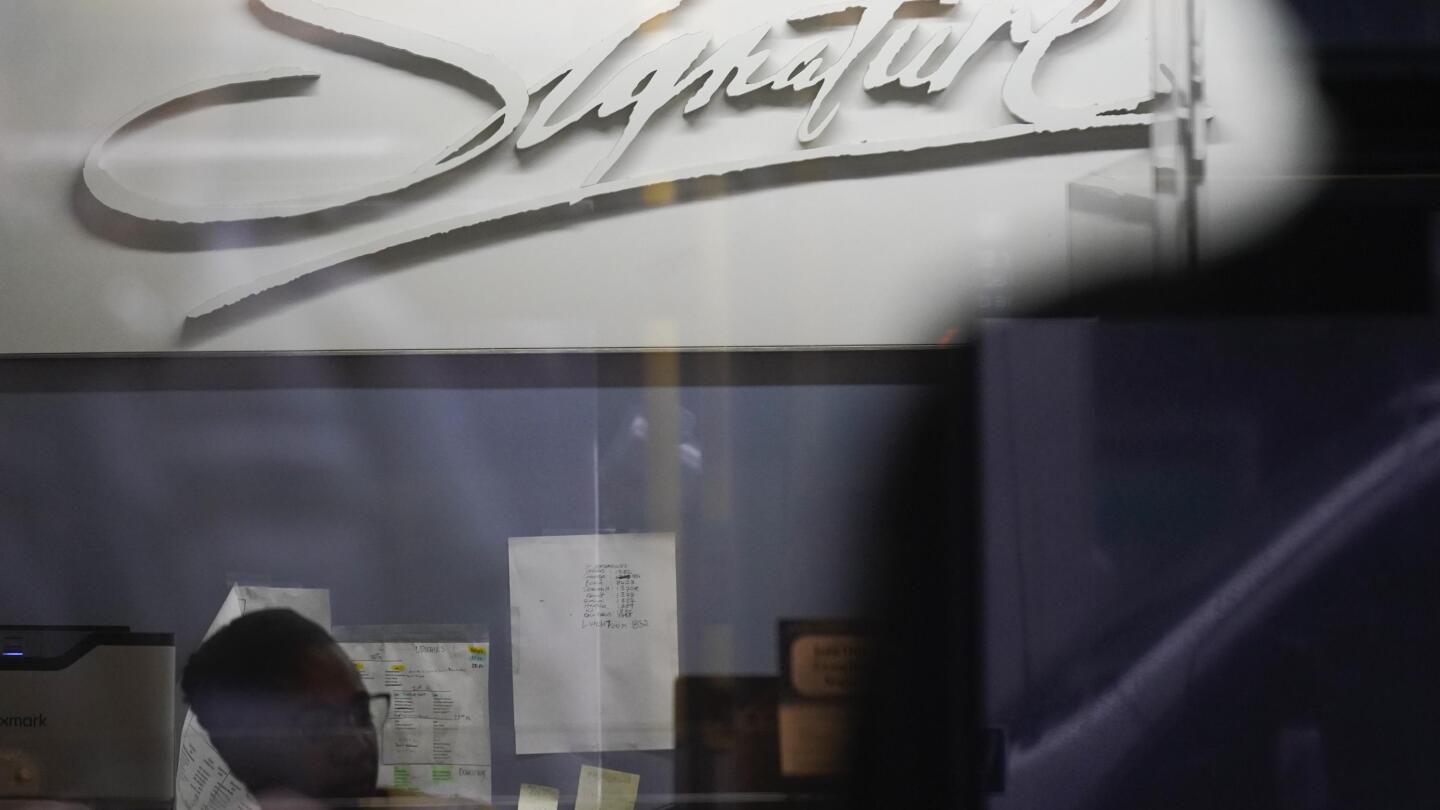excalibur
Diamond Member
- Mar 19, 2015
- 18,178
- 34,498
- 2,290
And on today's 'Cats & Cosby' on 77 WABC Radio, Barney Frank repeated what he said days ago, there was NO NEED to shut Signature Bank.
This is over-the-top nonsense being pulled right in front of our eyes by a dangerous administration. With the help of a compliant MSM.
A regulatory takeover of a New York-based bank was intended to send a message to U.S. banks to stay away from the cryptocurrency business, a former member of Congress who was on the bank’s board says.
Former U.S. Rep. Barney Frank said Monday that he believes the state officials behind the action were trying to make an example of Signature Bank in takeover that he said was the wrong move. Despite a wave of withdrawals, the bank’s situation was under control before regulators swooped in, he said.
“This was just a way to tell people, ‘We don’t want you dealing with crypto,’” Frank said in an interview.
Frank, a Democrat who served in Congress from 1981 until 2013, coauthored the Dodd-Frank act that boosted government oversight of banks following the 2008 financial crisis.
He was a director at Signature Bank until the New York Division of Financial Services took it over Sunday and gave control of it to the FDIC, the federal agency that insures bank deposits, until the bank can be sold.
Frank said the bank’s former operators have no recourse. But he said he expects some vindication when Signature is sold eventually.
“I believe they’re going to get a very good price,” Frank said, “proof that it was not a bank problem.”
...

 apnews.com
apnews.com
This is over-the-top nonsense being pulled right in front of our eyes by a dangerous administration. With the help of a compliant MSM.
A regulatory takeover of a New York-based bank was intended to send a message to U.S. banks to stay away from the cryptocurrency business, a former member of Congress who was on the bank’s board says.
Former U.S. Rep. Barney Frank said Monday that he believes the state officials behind the action were trying to make an example of Signature Bank in takeover that he said was the wrong move. Despite a wave of withdrawals, the bank’s situation was under control before regulators swooped in, he said.
“This was just a way to tell people, ‘We don’t want you dealing with crypto,’” Frank said in an interview.
Frank, a Democrat who served in Congress from 1981 until 2013, coauthored the Dodd-Frank act that boosted government oversight of banks following the 2008 financial crisis.
He was a director at Signature Bank until the New York Division of Financial Services took it over Sunday and gave control of it to the FDIC, the federal agency that insures bank deposits, until the bank can be sold.
Frank said the bank’s former operators have no recourse. But he said he expects some vindication when Signature is sold eventually.
“I believe they’re going to get a very good price,” Frank said, “proof that it was not a bank problem.”
...

Signature Bank seized to send banks a message, director says
A regulatory takeover of a New York-based bank was intended to send a message to banks to stay away from the cryptocurrency business.

